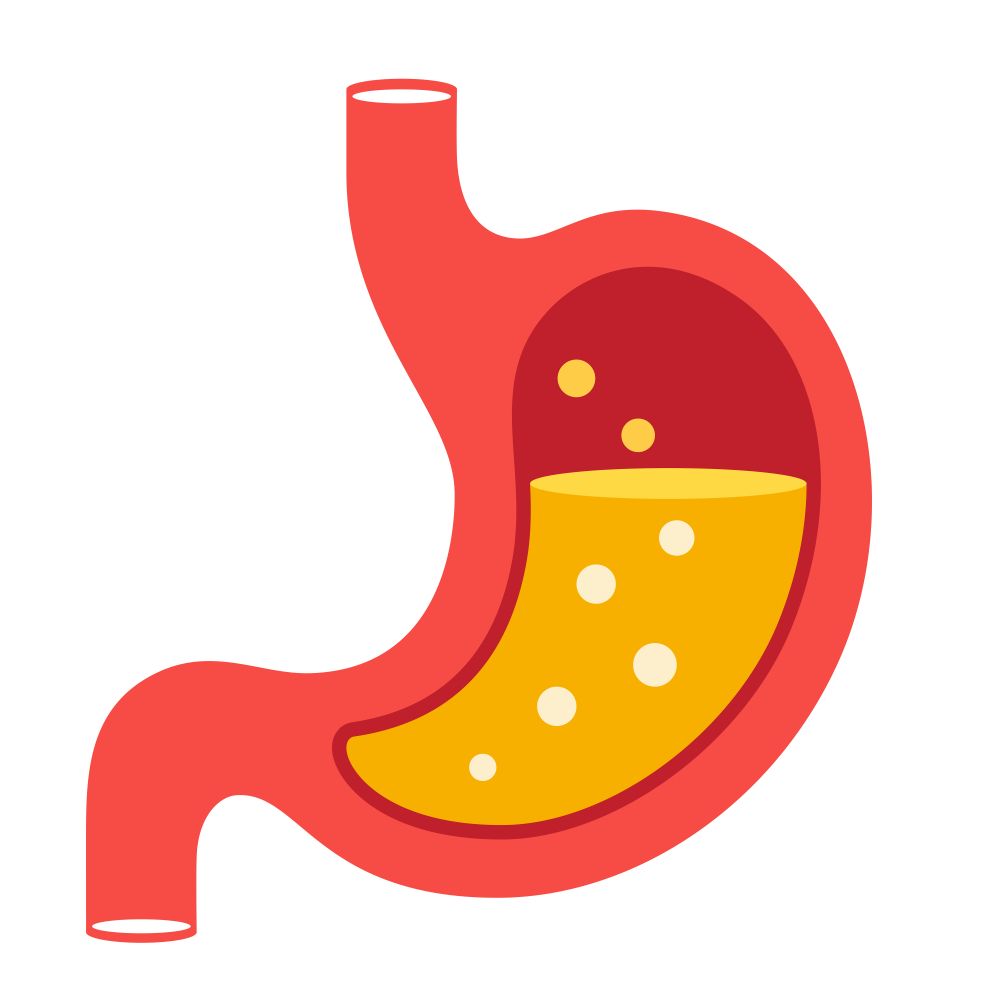What Causes It?
Diet and food sensitivities (spicy, fatty, or acidic foods)
Helicobacter pylori (H. pylori) bacterial infection
Medication side effects (NSAIDs, antibiotics, steroids)
Stress and anxiety
Alcohol consumption
Smoking
Gastroesophageal reflux disease (GERD)
Gallbladder diseases
Pancreatic disorders
Food poisoning or intestinal infections
Inflammatory bowel diseases (Crohn's disease, ulcerative colitis)
Irritable bowel syndrome (IBS)
Intestinal motility disorders
Malabsorption disorders
Anatomical abnormalities
Signs & Symptoms
Abdominal pain or discomfort
Heartburn or acid reflux
Nausea and vomiting
Bloating and gas
Indigestion (dyspepsia)
Changes in bowel habits (diarrhea, constipation, or alternating between both)
Blood in stool or black, tarry stools
Loss of appetite
Unexplained weight loss
Difficulty swallowing (dysphagia)
Fatigue
Jaundice (yellowing of the skin and eyes)
Feeling of fullness after eating small amounts of food
